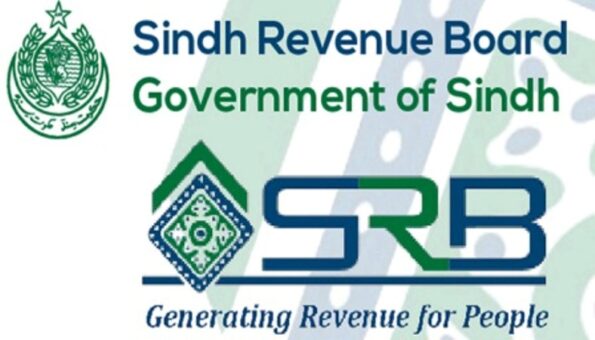KARACHI: The State Bank of Pakistan (SBP) on Tuesday increased key policy rate by 100 basis points to 13.25 percent for next two months.
The policy rate was announced by SBP governor Reza Baqir at a press conference here on Tuesday.
The governor said that the monetary policy is announced in the month of July. He said that Monetary Policy Committee (MPC) is an independent body to decide the policy rate.
The governor said that the increase in utility prices would have inflationary pressure. The average inflation during the current fiscal year may increase to 11 to 12 percent. However, the pace of inflation will ease down during third and fourth quarter, he added.
He said that hike in utility prices would inflate the prices of essential items. It may hurt the purchase power of common men. Considering these elements the committee decided to increase the discount rate, he added.
The governor said that the policy rate would be eased if indicators showed improvements in coming months.
The SBP later in its press release issued the following statement:
There have been three key developments since the last MPC meeting.
First, the Government of Pakistan has passed a FY20 budget that seeks to credibly improve fiscal sustainability by focusing on revenue measures to widen the tax base.
Adjustments in utility prices and other measures in the budget are expected to lead to a one-time considerable increase in prices in the first half of FY20.
On the other hand, the government has also committed to cease borrowing from the State Bank that would qualitatively improve the inflation outlook.
Second, the outlook for external financing has further strengthened with the disbursement of the first tranche associated with the IMF Extended Fund Facility, activation of the Saudi oil facility, and other commitments of support from multilateral and bilateral partners.
The current account deficit has also continued to fall suggesting that external pressures continue to decline. On the other hand, the depreciation in the exchange rate since the last MPC has added to inflationary pressures.
Finally, on the international front, the sentiment towards emerging markets has improved with greater expectations of a policy rate cut in the United States.
The SBP said that domestic demand is estimated to moderate to about 3 percent in FY19 and GDP growth to 3.3 percent.
While current high frequency indicators point to a slowing in economic activity, this is expected to turn around in the course of the year on the back of improved market sentiments in the context of IMF supported program, a rebound in the agriculture sector and the gradual impact of government incentives for export-oriented industries. Conditional upon the latest available information, SBP expect the real GDP growth of around 3.5 percent in FY20.
External conditions show continued steady improvement with a sizeable reduction in the current account deficit which fell by 29.3 percent to US$ 12.7 billion in Jul-May FY19 as compared to US$ 17.9 billion during the same period last year.
This improvement was primarily driven by import compression and healthy growth in workers’ remittances. Export volumes have been growing even though export values have remained subdued due to a fall in unit prices as also experienced by competitor exporting countries.
Future developments in export performance will also depend on growth rates of our trading partners and progress in alleviating domestic structural impediments.
SBP’s foreign exchange reserves have risen to about US$8 billion on 12th July 2019 with the disbursement of the first tranche of the IMF’s Extended Fund Facility.
Reserves are expected to rise further in FY20 on account of additional financial inflows from other international creditors including those related to the Saudi oil facility and continued improvement in current account deficit.
The bulk of the needed adjustment in the real effective exchange rate to address the past overhang of overvaluation has been completed with the recent deprecation of the exchange rate.
While the exchange rate is flexible and market determined the SBP stands ready to take action to address disorderly market conditions in the foreign exchange market.
Led by substantial shortfall in revenue collection, higher than budgeted interest payments and security related expenditures, both the overall fiscal and primary deficits deteriorated in FY19.
The FY20 budget seeks to credibly reverse the recent trend of fiscal deterioration by addressing long-standing weaknesses in the taxation system and to enhance documentation of economic activities.
On the back of an ambitious target for tax collection and tight control over expenditures, the budget envisaged a sizable reduction in primary deficit. This fiscal consolidation would support SBP’s stabilization policies already in place.
From a monetary policy perspective, the government’s strong commitment to end its borrowing from the SBP, and the implementation of liability management operation to restructure the outstanding debt held by SBP, would positively contribute towards monetary policy transmission while credibly anchor markets’ inflation expectations going forward.
Reflecting the impact of stabilization measures, private sector credit (PSC) growth has started to decelerate. PSC expanded 11.4 percent during 1st Jul – 28th Jun FY19 as compared to 14.8 percent during the same period last year.
The deceleration in credit was more pronounced in real terms as the increase in PSC was largely driven by higher input prices, which in turn increased the working capital needs of the businesses. This, together with higher budgetary borrowing led to a sharp increase in the net domestic assets (NDA) of the banking system.
In aggregate, broad money supply (M2) grew by 12.2 percent during 1st Jul – 28th Jun FY19 as compared to 10 percent during the comparable period last year.
Going forward, the composition of money supply is expected to change as NFA of the banking system is projected to improve, while the growth in NDA is likely to show substantial moderation.




